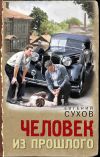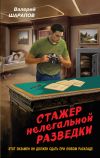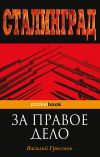Текст книги "The Great Boer War"

Автор книги: Arthur Conan Doyle
Жанр: Зарубежная публицистика, Публицистика
Возрастные ограничения: +12
сообщить о неприемлемом содержимом
Текущая страница: 33 (всего у книги 43 страниц)
This consists of the determined attack made by a party of De la Rey's men, upon December 3rd, on a convoy which was proceeding from Pretoria to Rustenburg, and had got as far as Buffel's Hoek. The convoy was a very large one, consisting of 150 wagons, which covered about three miles upon the march. It was guarded by two companies of the West Yorkshires, two guns of the 75th battery, and a handful of the Victoria Mounted Rifles. The escort appears entirely inadequate when it is remembered that these stores, which were of great value, were being taken through a country which was known to be infested by the enemy. What might have been foreseen occurred. Five hundred Boers suddenly rode down upon the helpless line of wagons and took possession of them. The escort rallied, however, upon a kopje, and, though attacked all day, succeeded in holding their own until help arrived. They prevented the Boers from destroying or carrying off as much of the convoy as was under their guns, but the rest was looted and burned. The incident was a most unfortunate one, as it supplied the enemy with a large quantity of stores, of which they were badly in need. It was the more irritating as it was freely rumoured that a Boer attack was pending; and there is evidence that a remonstrance was addressed from the convoy before it left Rietfontein to the General of the district, pointing out the danger to which it was exposed. The result was the loss of 120 wagons and of more than half the escort. The severity of the little action and the hardihood of the defence are indicated by the fact that the small body who held the kopje lost fifteen killed and twenty-two wounded, the gunners losing nine out of fifteen. A relieving force appeared at the close of the action, but no vigorous pursuit was attempted, although the weather was wet and the Boers had actually carried away sixty loaded wagons, which could only go very slowly. It must be confessed that from its feckless start to its spiritless finish the story of the Buffel's Hoek convoy is not a pleasant one to tell.
Clements, having made his way once more to the Magaliesberg range, had pitched his camp at a place called Nooitgedacht – not to be confused with the post upon the Delagoa Railway at which the British prisoners had been confined. Here, in the very shadow of the mountain, he halted for five days, during which, with the usual insouciance of British commanders, he does not seem to have troubled himself with any entrenching. He knew, no doubt, that he was too strong for his opponent De la Rey, but what he did not know, but might have feared, was that a second Boer force might appear suddenly upon the scene and join with De la Rey in order to crush him. This second Boer force was that of Commandant Beyers from Warm Baths. By a sudden and skilful movement the two united, and fell like a thunderbolt upon the British column, which was weakened by the absence of the Border Regiment. The result was such a reverse as the British had not sustained since Sanna's Post – a reverse which showed that, though no regular Boer army might exist, still a sudden coalition of scattered bands could at any time produce a force which would be dangerous to any British column which might be taken at a disadvantage. We had thought that the days of battles in this war were over, but an action which showed a missing and casualty roll of 550 proved that in this, as in so many other things, we were mistaken.
As already stated, the camp of Clements lay under a precipitous cliff, upon the summit of which he had placed four companies of the 2nd Northumberland Fusiliers. This strong post was a thousand feet higher than the camp. Below lay the main body of the force, two more companies of fusiliers, four of Yorkshire Light Infantry, the 2nd Mounted Infantry, Kitchener's Horse, yeomanry, and the artillery. The latter consisted of one heavy naval gun, four guns of the 8th R.F.A., and P battery R.H.A. The whole force amounted to about fifteen hundred men.
It was just at the first break of dawn – the hour of fate in South African warfare – that the battle began. The mounted infantry post between the camp and the mountains were aware of moving figures in front of them. In the dim light they could discern that they were clothed in grey, and that they wore the broad-brimmed hats and feathers of some of our own irregular corps. They challenged, and the answer was a shattering volley, instantly returned by the survivors of the picket. So hot was the Boer attack that before help could come every man save one of the picket was on the ground. The sole survivor, Daley of the Dublins, took no backward step, but continued to steadily load and fire until help came from the awakened camp. There followed a savage conflict at point blank-range. The mounted infantry men, rushing half clad to the support of their comrades, were confronted by an ever-thickening swarm of Boer riflemen, who had already, by working round on the flank, established their favourite cross fire. Legge, the leader of the mounted infantry, a hard little Egyptian veteran, was shot through the head, and his men lay thick around him. For some minutes it was as hot a corner as any in the war. But Clements himself had appeared upon the scene, and his cool gallantry turned the tide of fight. An extension of the line checked the cross fire, and gave the British in turn a flanking position. Gradually the Boer riflemen were pushed back, until at last they broke and fled for their horses in the rear. A small body were cut off, many of whom were killed and wounded, while a few were taken prisoners.
This stiff fight of an hour had ended in a complete repulse of the attack, though at a considerable cost. Both Boers and British had lost heavily. Nearly all the staff were killed or wounded, though General Clements had come through untouched. Fifty or sixty of both sides had fallen. But it was noted as an ominous fact that in spite of shell fire the Boers still lingered upon the western flank. Were they coming on again? They showed no signs of it. And yet they waited in groups, and looked up towards the beetling crags above them. What were they waiting for? The sudden crash of a murderous Mauser fire upon the summit, with the rolling volleys of the British infantry, supplied the answer.
Only now must it have been clear to Clements that he was not dealing merely with some spasmodic attack from his old enemy De la Rey, but that this was a largely conceived movement, in which a force at least double the strength of his own had suddenly been concentrated upon him. His camp was still menaced by the men whom he had repulsed, and he could not weaken it by sending reinforcements up the hill. But the roar of the musketry was rising louder and louder. It was becoming clearer that there was the main attack. It was a Majuba Hill action up yonder, a thick swarm of skirmishers closing in from many sides upon a central band of soldiers. But the fusiliers were hopelessly outnumbered, and this rock fighting is that above all others in which the Boer has an advantage over the regular. A helio on the hill cried for help. The losses were heavy, it said, and the assailants numerous. The Boers closed swiftly in upon the flanks, and the fusiliers were no match for their assailants. Till the very climax the helio still cried that they were being overpowered, and it is said that even while working it the soldier in charge was hurled over the cliff by the onrush of the victorious Boers.
The fight of the mounted infantry men had been at half-past four. At six the attack upon the hill had developed, and Clements in response to those frantic flashes of light had sent up a hundred men of the yeomanry, from the Fife and Devon squadrons, as a reinforcement. To climb a precipitous thousand feet with rifle, bandolier, and spurs, is no easy feat, yet that roar of battle above them heartened them upon their way. But in spite of all their efforts they were only in time to share the general disaster. The head of the line of hard-breathing yeomen reached the plateau just as the Boers, sweeping over the remnants of the Northumberland Fusiliers, reached the brink of the cliff. One by one the yeomen darted over the edge, and endeavoured to find some cover in the face of an infernal point-blank fire. Captain Mudie of the staff, who went first, was shot down. So was Purvis of the Fifes, who followed him. The others, springing over their bodies, rushed for a small trench, and tried to restore the fight. Lieutenant Campbell, a gallant young fellow, was shot dead as he rallied his men. Of twenty-seven of the Fifeshires upon the hill six were killed and eleven wounded. The statistics of the Devons are equally heroic. Those yeomen who had not yet reached the crest were in a perfectly impossible position, as the Boers were firing from complete cover right down upon them. There was no alternative for them but surrender. By seven o'clock every British soldier upon the hill, yeoman or fusilier, had been killed, wounded, or taken. It is not true that the supply of cartridges ran out, and the fusiliers, with the ill-luck which has pursued the 2nd battalion, were outnumbered and outfought by better skirmishers than themselves.
Seldom has a General found himself in a more trying position than Clements, or extricated himself more honourably. Not only had he lost nearly half his force, but his camp was no longer tenable, and his whole army was commanded by the fringe of deadly rifles upon the cliff. From the berg to the camp was from 800 to 1000 yards, and a sleet of bullets whistled down upon it. How severe was the fire may be gauged from the fact that the little pet monkey belonging to the yeomanry – a small enough object – was hit three times, though he lived to survive as a battle-scarred veteran. Those wounded in the early action found themselves in a terrible position, laid out in the open under a withering fire, 'like helpless Aunt Sallies,' as one of them described it. 'We must get a red flag up, or we shall be blown off the face of the earth,' says the same correspondent, a corporal of the Ceylon Mounted Infantry. 'We had a pillow-case, but no red paint. Then we saw what would do instead, so they made the upright with my blood, and the horizontal with Paul's.' It is pleasant to add that this grim flag was respected by the Boers. Bullocks and mules fell in heaps, and it was evident that the question was not whether the battle could be restored, but whether the guns could be saved. Leaving a fringe of yeomen, mounted infantry, and Kitchener's Horse to stave off the Boers, who were already descending by the same steep kloof up which the yeomen had climbed, the General bent all his efforts to getting the big naval gun out of danger. Only six oxen were left out of a team of forty, and so desperate did the situation appear that twice dynamite was placed beneath the gun to destroy it. Each time, however, the General intervened, and at last, under a stimulating rain of pom-pom shells, the great cannon lurched slowly forward, quickening its pace as the men pulled on the drag-ropes, and the six oxen broke into a wheezy canter. Its retreat was covered by the smaller guns which rained shrapnel upon the crest of the hill, and upon the Boers who were descending to the camp. Once the big gun was out of danger, the others limbered up and followed, their rear still covered by the staunch mounted infantry, with whom rest all the honours of the battle. Cookson and Brooks with 250 men stood for hours between Clements and absolute disaster. The camp was abandoned as it stood, and all the stores, four hundred picketed horses, and, most serious of all, two wagons of ammunition, fell into the hands of the victors. To have saved all his guns, however, after the destruction of half his force by an active enemy far superior to him in numbers and in mobility, was a feat which goes far to condone the disaster, and to increase rather than to impair the confidence which his troops feel in General Clements. Having retreated for a couple of miles he turned his big gun round upon the hill, which is called Yeomanry Hill, and opened fire upon the camp, which was being looted by swarms of Boers. So bold a face did he present that he was able to remain with his crippled force upon Yeomanry Hill from about nine until four in the afternoon, and no attack was pressed home, though he lay under both shell and rifle fire all day. At four in the afternoon he began his retreat, which did not cease till he had reached Rietfontein, twenty miles off, at six o'clock upon the following morning. His weary men had been working for twenty-six hours, and actually fighting for fourteen, but the bitterness of defeat was alleviated by the feeling that every man, from the General downwards, had done all that was possible, and that there was every prospect of their having a chance before long of getting their own back.
The British losses at the battle of Nooitgedacht amounted to 60 killed, 180 wounded, and 315 prisoners, all of whom were delivered up a few days later at Rustenburg. Of the Boer losses it is, as usual, impossible to speak with confidence, but all the evidence points to their actual casualties being as heavy as those of the British. There was the long struggle at the camp in which they were heavily punished, the fight on the mountain, where they exposed themselves with unusual recklessness, and the final shelling from shrapnel and from lyddite. All accounts agree that their attack was more open than usual. 'They were mowed down in twenties that day, but it had no effect. They stood like fanatics,' says one who fought against them. From first to last their conduct was most gallant, and great credit is due to their leaders for the skilful sudden concentration by which they threw their whole strength upon the exposed force. Some eighty miles separate Warm Baths from Nooitgedacht, and it seems strange that our Intelligence Department should have remained in ignorance of so large a movement.
General Broadwood's 2nd Cavalry Brigade had been stationed to the north of Magaliesberg, some twelve miles westward of Clements, and formed the next link in the long chain of British forces. Broadwood does not appear, however, to have appreciated the importance of the engagement, and made no energetic movement to take part in it. If Colvile is open to the charge of having been slow to 'march upon the cannon' at Sanna's Post, it might be urged that Broadwood in turn showed some want of energy and judgment upon this occasion. On the morning of the 13th his force could hear the heavy firing to the eastward, and could even see the shells bursting on the top of the Magaliesberg. It was but ten or twelve miles distant, and, as his Elswick guns have a range of nearly five, a very small advance would have enabled him to make a demonstration against the flank of the Boers, and so to relieve the pressure upon Clements. It is true that his force was not large, but it was exceptionally mobile. Whatever the reasons, no effective advance was made by Broadwood. On hearing the result he fell back upon Rustenburg, the nearest British post, his small force being dangerously isolated.
Those who expected that General Clements would get his own back had not long to wait. In a few days he was in the field again. The remains of his former force had, however, been sent into Pretoria to refit, and nothing remained of it save the 8th R.F.A. and the indomitable cow-gun still pocked with the bullets of Nooitgedacht. He had also F battery R.H.A., the Inniskillings, the Border regiment, and a force of mounted infantry under Alderson. More important than all, however, was the co-operation of General French, who came out from Pretoria to assist in the operations. On the 19th, only six days after his defeat, Clements found himself on the very same spot fighting some at least of the very same men. This time, however, there was no element of surprise, and the British were able to approach the task with deliberation and method. The result was that both upon the 19th and 20th the Boers were shelled out of successive positions with considerable loss, and driven altogether away from that part of the Magaliesberg. Shortly afterwards General Clements was recalled to Pretoria, to take over the command of the 7th Division, General Tucker having been appointed to the military command of Bloemfontein in the place of the gallant Hunter, who, to the regret of the whole army, was invalided home. General Cunningham henceforward commanded the column which Clements had led back to the Magaliesberg.
Upon November 13th the first of a series of attacks was made upon the posts along the Delagoa Railway line. These were the work of Viljoen's commando, who, moving swiftly from the north, threw themselves upon the small garrisons of Balmoral and of Wilge River, stations which are about six miles apart. At the former was a detachment of the Buffs, and at the latter of the Royal Fusiliers. The attack was well delivered, but in each instance was beaten back with heavy loss to the assailants. A picket of the Buffs was captured at the first rush, and the detachment lost six killed and nine wounded. No impression was made upon the position, however, and the double attack seems to have cost the Boers a large number of casualties.
Another incident calling for some mention was the determined attack made by the Boers upon the town of Vryheid, in the extreme south-east of the Transvaal near the Natal border. Throughout November this district had been much disturbed, and the small British garrison had evacuated the town and taken up a position on the adjacent hills. Upon December 11th the Boers attempted to carry the trenches. The garrison of the town appears to have consisted of the 2nd Royal Lancaster regiment, some five hundred strong, a party of the Lancashire Fusiliers, 150 strong, and fifty men of the Royal Garrison Artillery, with a small body of mounted infantry. They held a hill about half a mile north of the town, and commanding it. The attack, which was a surprise in the middle of the night, broke upon the pickets of the British, who held their own in a way which may have been injudicious but was certainly heroic. Instead of falling back when seriously attacked, the young officers in charge of these outposts refused to move, and were speedily under such a fire that it was impossible to reinforce them. There were four outposts, under Woodgate, Theobald, Lippert, and Mangles. The attack at 2.15 on a cold dark morning began at the post held by Woodgate, the Boers coming hand-to-hand before they were detected. Woodgate, who was unarmed at the instant, seized a hammer, and rushed at the nearest Boer, but was struck by two bullets and killed. His post was dispersed or taken. Theobald and Lippert, warned by the firing, held on behind their sangars, and were ready for the storm which burst over them. Lippert was unhappily killed, and his ten men all hit or taken, but young Theobald held his own under a heavy fire for twelve hours. Mangles also, the gallant son of a gallant father, held his post all day with the utmost tenacity. The troops in the trenches behind were never seriously pressed, thanks to the desperate resistance of the outposts, but Colonel Gawne of the Lancasters was unfortunately killed. Towards evening the Boers abandoned the attack, leaving fourteen of their number dead upon the ground, from which it may be guessed that their total casualties were not less than a hundred. The British losses were three officers and five men killed, twenty-two men wounded, and thirty men with one officer missing – the latter being the survivors of those outposts which were overwhelmed by the Boer advance.
A few incidents stand out among the daily bulletins of snipings, skirmishes, and endless marchings which make the dull chronicle of these, the last months of the year 1900. These must be enumerated without any attempt at connecting them. The first is the long-drawn-out siege or investment of Schweizer-Renecke. This small village stands upon the Harts River, on the western border of the Transvaal. It is not easy to understand why the one party should desire to hold, or the other to attack, a position so insignificant. From August 19th onwards it was defended by a garrison of 250 men, under the very capable command of Colonel Chamier, who handled a small business in a way which marks him as a leader. The Boer force, which varied in numbers from five hundred to a thousand, never ventured to push home an attack, for Chamier, fresh from the experience of Kimberley, had taken such precautions that his defences were formidable, if not impregnable. Late in September a relieving force under Colonel Settle threw fresh supplies into the town, but when he passed on upon his endless march the enemy closed in once more, and the siege was renewed. It lasted for several months, until a column withdrew the garrison and abandoned the position.
Of all the British detachments, the two which worked hardest and marched furthest during this period of the war was the 21st Brigade (Derbysbires, Sussex, and Camerons) under General Bruce Hamilton, and the column under Settle, which operated down the western border of the Orange River Colony, and worked round and round with such pertinacity that it was familiarly known as Settle's Imperial Circus. Much hard and disagreeable work, far more repugnant to the soldier than the actual dangers of war, fell to the lot of Bruce Hamilton and his men. With Kroonstad as their centre they were continually working through the dangerous Lindley and Heilbron districts, returning to the railway line only to start again immediately upon a fresh quest. It was work for mounted police, not for infantry soldiers, but what they were given to do they did to the best of their ability. Settle's men had a similar thankless task. From the neighbourhood of Kimberley he marched in November with his small column down the border of the Orange River Colony, capturing supplies and bringing in refugees. He fought one brisk action with Hertzog's commando at Kloof, and then, making his way across the colony, struck the railway line again at Edenburg on December 7th, with a train of prisoners and cattle.
Rundle also had put in much hard work in his efforts to control the difficult district in the north-east of the Colony which had been committed to his care. He traversed in November from north to south the same country which he had already so painfully traversed from south to north. With occasional small actions he moved about from Vrede to Reitz, and so to Bethlehem and Harrismith. On him, as on all other commanders, the vicious system of placing small garrisons in the various towns imposed a constant responsibility lest they should be starved or overwhelmed.
The year and the century ended by a small reverse to the British arms in the Transvaal. This consisted in the capture of a post at Helvetia defended by a detachment of the Liverpool Regiment and by a 4.7 gun. Lydenburg, being seventy miles off the railway line, had a chain of posts connecting it with the junction at Machadodorp. These posts were seven in number, ten miles apart, each defended by 250 men. Of these Helvetia was the second. The key of the position was a strongly fortified hill about three-quarters of a mile from the headquarter camp, and commanding it. This post was held by Captain Kirke with forty garrison artillery to work the big gun, and seventy Liverpool infantry. In spite of the barbed-wire entanglements, the Boers most gallantly rushed this position, and their advance was so rapid, or the garrison so slow, that the place was carried with hardly a shot fired. Major Cotton, who commanded the main lines, found himself deprived in an instant of nearly half his force and fiercely attacked by a victorious and exultant enemy. His position was much too extended for the small force at his disposal, and the line of trenches was pierced and enfiladed at many points. It must be acknowledged that the defences were badly devised – little barbed wire, frail walls, large loopholes, and the outposts so near the trenches that the assailants could reach them as quickly as the supports. With the dawn Cotton's position was serious, if not desperate. He was not only surrounded, but was commanded from Gun Hill. Perhaps it would have been wiser if, after being wounded, he had handed over the command to Jones, his junior officer. A stricken man's judgement can never be so sound as that of the hale. However that may be, he came to the conclusion that the position was untenable, and that it was best to prevent further loss of life. Fifty of the Liverpools were killed and wounded, 200 taken. No ammunition of the gun was captured, but the Boers were able to get safely away with this humiliating evidence of their victory. One post, under Captain Wilkinson with forty men, held out with success, and harassed the enemy in their retreat. As at Dewetsdorp and at Nooitgedacht, the Boers were unable to retain their prisoners, so that the substantial fruits of their enterprise were small, but it forms none the less one more of those incidents which may cause us to respect our enemy and to be critical towards ourselves[18]18
Considering that Major Stapelton Cotton was himself wounded in three places during the action (one of these wounds being in the head), he has had hard measure in being deprived of his commission by a court-martial which sat eight months after the event. It is to be earnestly hoped that there may be some revision of this severe sentence.
[Закрыть].
In the last few months of the year some of those corps which had served their time or which were needed elsewhere were allowed to leave the seat of war. By the middle of November the three different corps of the City Imperial Volunteers, the two Canadian contingents, Lumsden's Horse, the Composite Regiment of Guards, six hundred Australians, A battery R.H.A., and the volunteer companies of the regular regiments, were all homeward bound. This loss of several thousand veteran troops before the war was over was to be deplored, and though unavoidable in the case of volunteer contingents, it is difficult to explain where regular troops are concerned. Early in the new year the Government was compelled to send out strong reinforcements to take their place.
Early in December Lord Roberts also left the country, to take over the duties of Commander-in-Chief. High as his reputation stood when, in January, he landed at Cape Town, it is safe to say that it had been immensely enhanced when, ten months later, he saw from the quarter-deck of the 'Canada' the Table Mountain growing dimmer in the distance. He found a series of disconnected operations, in which we were uniformly worsted. He speedily converted them into a series of connected operations in which we were almost uniformly successful. Proceeding to the front at the beginning of February, within a fortnight he had relieved Kimberley, within a month he had destroyed Cronje's force, and within six weeks he was in Bloemfontein. Then, after a six weeks' halt which could not possibly have been shortened, he made another of his tiger leaps, and within a month had occupied Johannesburg and Pretoria. From that moment the issue of the campaign was finally settled, and though a third leap was needed, which carried him to Komatipoort, and though brave and obstinate men might still struggle against their destiny, he had done what was essential, and the rest, however difficult, was only the detail of the campaign. A kindly gentleman, as well as a great soldier, his nature revolted from all harshness, and a worse man might have been a better leader in the last hopeless phases of the war. He remembered, no doubt, how Grant had given Lee's army their horses, but Lee at the time had been thoroughly beaten, and his men had laid down their arms. A similar boon to the partially conquered Boers led to very different results, and the prolongation of the war is largely due to this act of clemency. At the same time political and military considerations were opposed to each other upon the point, and his moral position in the use of harsher measures is the stronger since a policy of conciliation had been tried and failed. Lord Roberts returned to London with the respect and love of his soldiers and of his fellow-countrymen. A passage from his farewell address to his troops may show the qualities which endeared him to them.
'The service which the South African Force has performed is, I venture to think, unique in the annals of war, inasmuch as it has been absolutely almost incessant for a whole year, in some cases for more than a year. There has been no rest, no days off to recruit, no going into winter quarters, as in other campaigns which have extended over a long period. For months together, in fierce heat, in biting cold, in pouring rain, you, my comrades, have marched and fought without halt, and bivouacked without shelter from the elements. You frequently have had to continue marching with your clothes in rags and your boots without soles, time being of such consequence that it was impossible for you to remain long enough in one place to refit. When not engaged in actual battle you have been continually shot at from behind kopjes by invisible enemies to whom every inch of the country was familiar, and who, from the peculiar nature of the country, were able to inflict severe punishment while perfectly safe themselves. You have forced your way through dense jungles, over precipitous mountains, through and over which with infinite manual labour you have had to drag heavy guns and ox-wagons. You have covered with almost incredible speed enormous distances, and that often on very short supplies of food. You have endured the sufferings inevitable in war to sick and wounded men far from the base, without a murmur and even with cheerfulness.'
The words reflect honour both upon the troops addressed and upon the man who addressed them. From the middle of December 1900 Lord Kitchener took over the control of the campaign.
Правообладателям!
Это произведение, предположительно, находится в статусе 'public domain'. Если это не так и размещение материала нарушает чьи-либо права, то сообщите нам об этом.








































